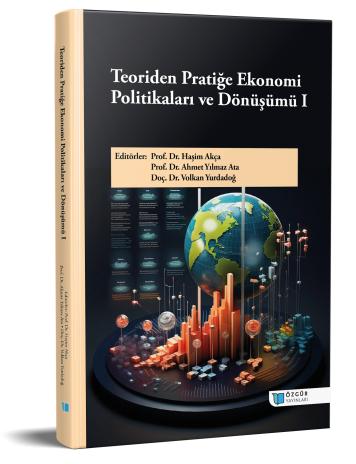
Are Energy Intensity, Total Primary Energy Consumption, Renewable Energy Consumption, and CO2 Emissions a Driver for Economic Growth? Evidence from Turkiye
Şu kitabın bölümü:
Akça,
H.
&
Ata,
A.
Y.
&
Yurdadoğ,
V.
(eds.)
2023.
Teoriden Pratiğe Ekonomi Politikaları ve Dönüşümü I.
Özet
This primary purpose of this study is to investigate the impact of energy intensity (EI), total primary energy consumption per capita (EC), renewable energy consumption (REW) and CO2 emissions, which are among the energy security elements, on GDP in Turkiye. Additionally, population (POP) and trade openness (TO) rates are control variables in the model. The analysis of the study consists of annual data from 1980 to 2022. The fully modified ordinary least squares (FMOLS) and dynamic ordinary least squares (DOLS) approaches were used in this study to estimate long-term models. The study also employed the canonical cointegrating regression (CCR) method as a robust estimator. The estimated results of the study indicate that energy security has strongly affects on GDP in Turkiye. Accordingly, primary energy consumption, renewable energy consumption, and CO2 emissions have positive effects on GDP. In addition, energy intensity affects GDP negatively, as expected. An energy policy that supports low energy intensity and high renewable energy consumption can be a pioneer of sustainable growth. However, the positive impact of primary energy consumption and CO2 on GDP indicates that environmental degradation may increase in Turkiye's economic growth process. In other words, economic growth also depends on factors that cause energy insecurity. Therefore, it is important to develop policies that support energy security (high renewable energy consumption, low carbon emissions, low energy intensity, and low primary energy consumption). Moreover, as expected, trade openness and population support economic growth in Turkiye.

